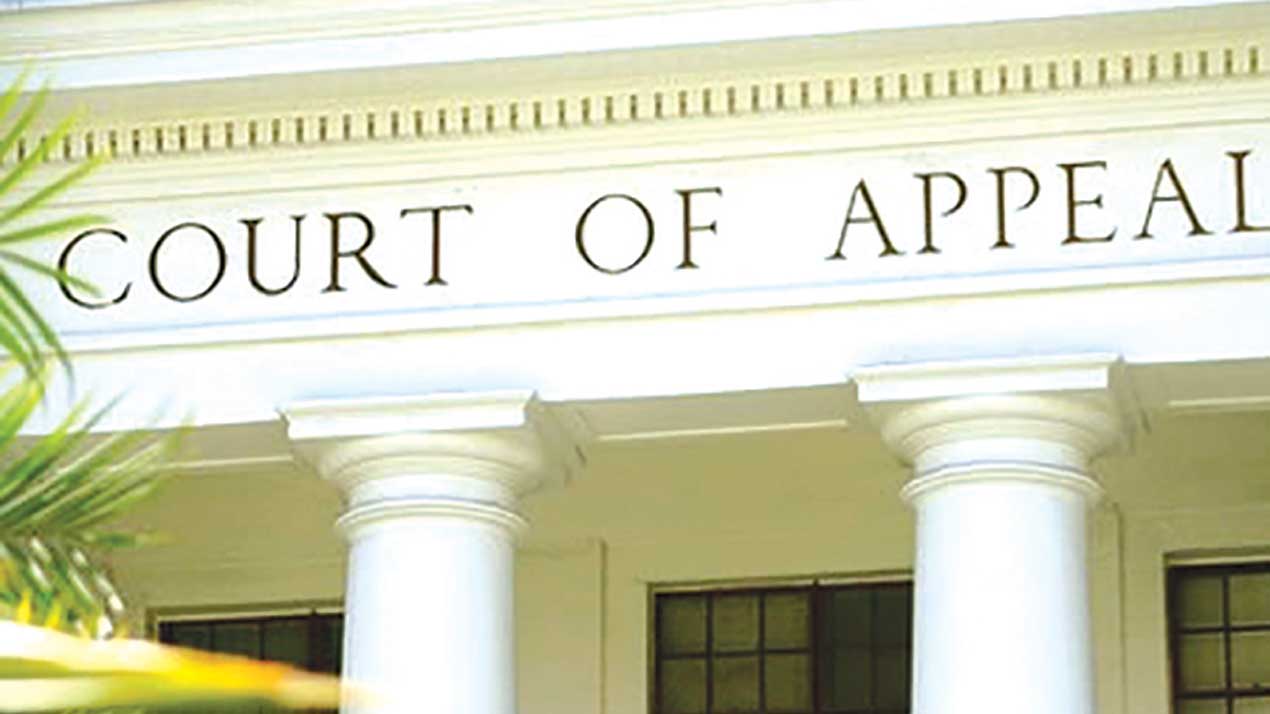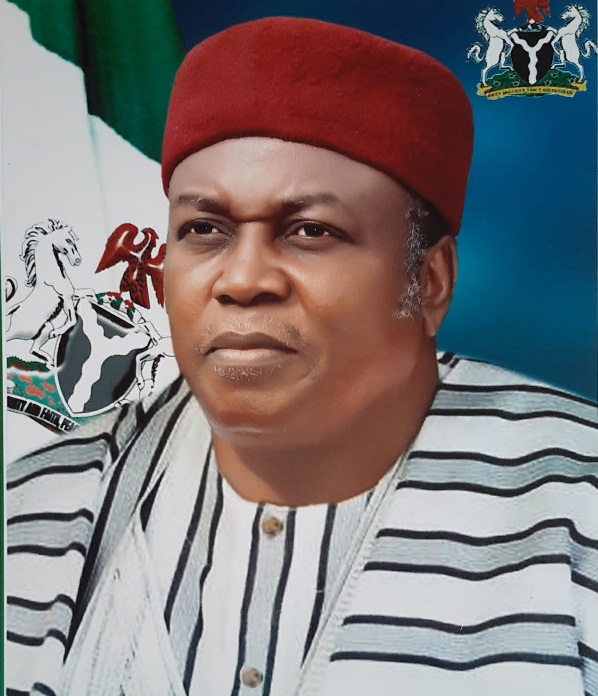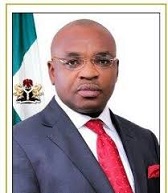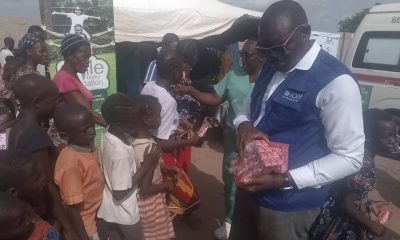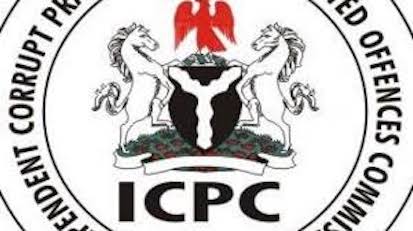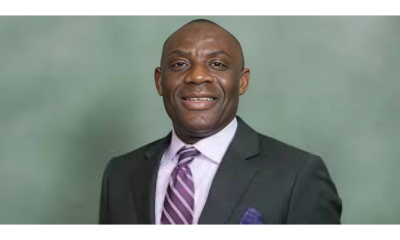Health
I Didn’t Divert any N300m – Fmr Minister
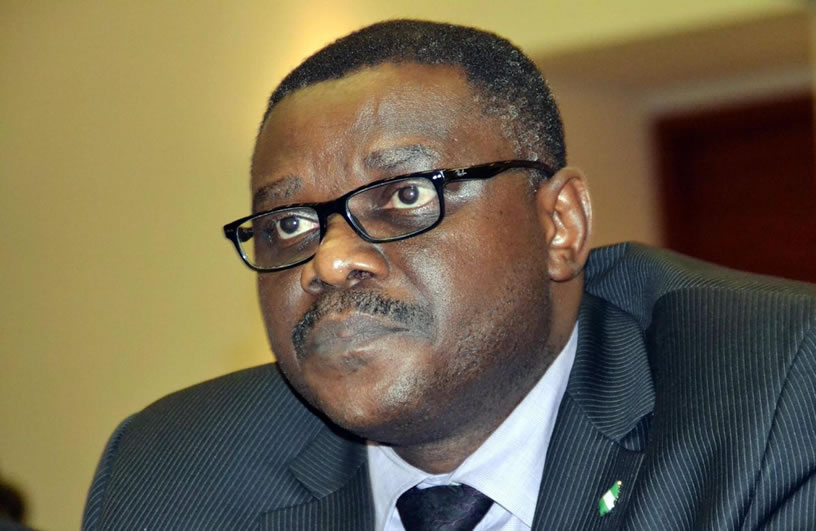
The former Minister of Health, Prof. Onyebuchi Chukwu, has denied allegation that he diverted N300m meant for medical equipment in Zamfara to Enugu state, he described Senator Kabiru Marafa, representing Zamfara Central, who allegedly accused him as a blatant liar.
He added that Senator Marafa’s claim is mischievous, baseless and an attempt to score political point after failing woefully in his 8 years as a senator.
It would be recalled that Senator Marafa had at plenary, accused the former Minister of conniving with the then Permanent Secretary in his ministry to divert N300 million constituency project fund meant for the procurement of equipment for the Federal Medical Centre (FMC), Gusau, to his alleged home state of Enugu.
Prof. Chukwu, who wondered why neither Senator Marafa nor the current Minister of Health had never approached him for his explanations on the issue, accused Senator Marafa of being mischievous and playing to the gallery.
According to the Minister, “What Nigerians should be asking Distinguished Senator Marafa is why it has taken him till the end of his 8-year career in the senate to raise the matter in the melodramatic manner he did.
“Senator Marafa was merely playing politics to hoodwink his constituents who are probably demanding for accountability from their representatives given the unfortunate turn of events in Zamfara State.”
Prof. noted that he is not from Enugu State, decried being drawn into the insidious politics of ethnicity by an outgoing senator who was desperate to score cheap political points to burnish his image.
In a statement by his former Special Assistant on Media and ommunication, Dan Nwomeh, Prof. Chukwu explained that, based on the Public procurement Act of 2007, parastatals and agencies awarded contracts within their
approval thresholds, adding that: “But where the contract value was above the limit set for them, they were duty-bound to send it to the Ministerial Tenders Board, which in turn sent the contracts above its approval threshold to the Federal Executive Council (FEC).”
Giving insight into what actually transpired, Prof. Chukwu recalled how the Director General of the Budget Office wrote a letter to the Federal Ministry of Health in December 2013, quoting a letter earlier written to him by Senator Marafa where he alleged that the ministry had refused to release the said fund.
Prof. Chukwu said he promptly minuted the letter to the Permanent Secretary and the Director of Finance and Accounts who stated that there was no such fund with the ministry, while producing the schedule of approved projects and funds released from the Office of the Accountant General of the Federation as evidence.
He said that he consequently wrote back to the Director General of Budget Office in March 2014, informing him of the situation.
“It was apparently this misleading letter from the Director General of the
Budget Office that Senator Marafa had been relying on for his unsubstantiated claims”, he said.
He advised Marafa to find out from other MDAs how they secured the release of their approved funds for constituency projects at the time, citing the Federal Medical Centre (FMC), Owerri, which implemented a constituency project during the same period as the Federal Medical Centre Gusau which he said traced a similar approved fund to the Office of the Ministry of Special Duties and Inter-governmental Affairs.
“Against this background, it is obvious that the Minister of Health had no powers to divert, and could not have diverted, the funds approved for an agency for another purpose.
“And if the same due process regime is still in place today, as I believe it does, there was no basis for the purported apology tendered by the current Minister of Health on behalf the Federal Ministry of Health, then under my watch, to Senator Marafa.”
On the alleged procurement of mosquito nets for Enugu State, Chukwu also denied that the Federal Ministry of Health did not at any time procured insecticide-treated mosquito nets for any single state in the country under his stewardship.
He said that nets were mainly sourced through two channels which did not involve the ministry in the procurement process- the Global Fund and the World Bank, respectively.
Health
Soludo’s Wife Establishes Pad Banks in 300 schools

Wife of Anambra State Governor, Dr Nonye Soludo, says she has established pad banks in 300 schools across the state as part of her pet project, Healthy Living Initiative.
Mrs Soludo disclosed this in a message in Awka on Wednesday to mark the 2025 World Menstrual Hygiene Day.
She said that the initiative was her own approach to helping school girls whose academic focus could be affected during menstruation and related emergencies.
Mrs Soludo stressed the need to provide immediate solutions for menstrual emergencies in schools, so that girls caught off guard could confidently rely on the pad banks.
“Official data say that an estimated 37 million women and girls in Nigeria are unable to afford sanitary pads and only rely on unhygienic alternatives.
“The data reinforce World Health Organisation and United Nations Children’s Fund finding that poor water, sanitation and hygiene infrastructure hinders safe and dignified menstruation for women and girls.
“Other data say that only two in five schools globally offer menstrual health education and just one in three have bins for menstrual waste.
“These figures challenge key stakeholders to find practical solutions to address the root of the problem while the situation remains reversible.”
She called for intensified campaign to reach more women and girls currently facing menstrual hygiene challenges.
The governor’s wife noted that the growing number of women, especially girls, in urgent need of menstrual support makes it essential for stakeholders to re-strategise their campaign approach.
According to her, menstrual health remains the right of every girl-child.
She encouraged girls at the designated schools participating in the pad bank project to use the supplies with confidence.
Mrs Soludo assured them that her NGO was fully committed to restocking any of the pad banks that run out of sanitary products.(NAN)
General News
More Recognitions, Honor for Ogbodo, Receives Peace Ambassador, Ministerial Award for Outstanding Service

By David Torough, Abuja
Medical Director of Lydia Memorial Hospital in Okpokwu, Benue State, Dr. Mark Ogbodo has once again been honored for his exceptional service to humanity.
This time receiving the prestigious title of Peace Ambassador and a Ministerial Award for the Most Dedicated, Committed and Hardworking Hospital in Benue State.
The honours were bestowed by the National Association of Nigerian Youths Ambassadors for Peace Initiative (NANYAPI) in recognition of Dr.
Ogbodo’s bravery, dedication, and unwavering commitment to medical service delivery in Okpokwu Local Government Area, Benue State, and Nigeria at large.Presenting the award, the President of NANYAPI, Comrade Aji Abraham, described Dr.
Ogbodo as a role model whose leadership and selfless service have distinguished him as a beacon of peace and a symbol of hope. He commended Dr. Ogbodo’s outstanding managerial skills and humanitarian spirit, which he said inspired the association to honour him.The event, held at Lydia Memorial Hospital, drew friends, well-wishers, and dignitaries from various sectors. In a welcome address on behalf of the hospital’s management and staff, Miss Victory Oche expressed heartfelt appreciation for the presence of the association’s leadership and delegates, as well as supporters of Dr. Ogbodo.
“May our purpose of gathering here today, which is to celebrate and honour our mentor and leader, Dr. Mark A. C. Ogbodo, for his unwavering and relentless contributions to humanity and nation building, be fruitful,” she said.
In his acceptance speech, Dr. Ogbodo expressed profound gratitude for the recognition, stating that the award had deeply touched him and would further motivate his advocacy for peace and service to humanity.
“I am deeply humbled and honoured to receive this award,” he said. “It means a lot to me as it acknowledges contributions I never knew were being noticed. This recognition will further spur me to continue promoting peace, unity, and development.”
He urged fellow peace ambassadors to embody the values of integrity, neutrality, and positive engagement. “Tarnish no image. Blackmail no opponent. Build bridges across tribes, cultures, and political divides. Serve as true ambassadors of peace,” he urged.
Dr. Ogbodo pledged continued support for NANYAPI and reaffirmed his commitment to peacebuilding efforts across Nigeria.
The ceremony also featured goodwill messages from traditional leaders, security officers, youth leaders, and the hospital staff, including HRH Chief Mark Barron Onah, Ward Head of Akpodo Community; SP Okoliko, DPO of Ugbokolo Division; Hon. Andrew Ameh, Youth Leader of Amejo Ward; Inspector Ogbaka of Ugbokolo Police Division; and staff of Lydia Memorial Hospital.
Health
We want Nigeria Where No Child Is Exploited, Excluded – Children’s Parliament

National Children’s Parliament has urged stakeholders to build a Nigeria where no child faces violence, forced labour or exclusion.
The Speaker of the parliament, Progress Umoh, made the call at the 2025 National Children’s Day in Abuja on Tuesday.
Umoh said that children craved for a country where every child has the tool to learn, dream and grow to full potential.
She pointed out that many children face violence, fear and exclusion in spaces meant to nurture them, adding that children demand more than promises.
“We demand protection. As Nelson Mandela said — a society’s soul is measured by how it treats its children.
“Let us honour that truth with action.
“As the speaker of the National Children’s Parliament, I stand before you not just as a young Nigerian but as a voice for millions of children whose rights and future depend on meaningful action.”
She said that the Children’s Parliament serves as vital platform where young voices unite to address critical issues, propose solutions and drive change.
According to her, children deserve a seat at the table in shaping policies that affect them.
She noted that the theme of the global observance — “Stand Up, Speak Up: Building a Bullying-Free Generation”, is an urgent call to action.
She, therefore, called for full implementation of the National Policy on Safe Schools to ensure every child learns in a safe environment without fear.
The speaker also stressed the need to strengthen child rights advocacy clubs in rural and underserved areas.
This, according to her, will empower young leaders to speak up.
She explained that “while initiatives like the National Commission for Almajiri Education are commendable, we need bolder steps to rescue out-of-school children, providing them education, safety and skills for the future.
“Programmes like the Girl-Led Movement proves that when children lead, change happens, such
initiatives must include all children, ensuring their voices shape decisions about their lives.”
Responding, President Bola Tinubu reaffirmed his administration’s commitment to protecting the rights, dreams and future of every Nigerian child.
Represented by the Minister of the Federal Capital Territory, Mr Nyesom Wike, the president described children as “the precious part of the nation’s fabric.”
Wike was also represented at the event by the FCT Minister of State, Dr Mariya Mahmoud.
Tinubu added that children are also the heartbeat of Nigeria’s future and custodians of tomorrow’s promise, innovation and leadership.
He said “I, therefore, reaffirm today, our constitutional, moral and intergenerational duty and commitment to safeguard every Nigerian child, protect their rights and nurture their dreams.”
Similarly, the Minister of Women Affairs, Imaan Sulaiman-Ibrahim, said children’s day serves as an opportunity to reaffirm commitment to uphold the rights of every child to survive, thrive and fulfil their potential.
Sulaiman-Ibrahim added that the day also presents an opportunity to reflect and renew commitment to the rights, protection and wellbeing of every Nigerian child.
She said the Federal Government would strengthen the Nigeria Children’s Parliament to institutionalise child participation in governance.
“We are also developing the institutional framework for a National Child Protection and Development Agency.
“This strategic action aligned with the ministry’s Five-Year Strategic Roadmap to ensure accountability, coordination and sustainability in child welfare programming.”
On her part, Dr Adedayo Benjamins-Laniyi, the Pioneer Mandate Secretary, FCT Women Affairs, said “we are here to recognise the significance of our children in the family circle and the society at large.
“Importantly, we are here to stress the obvious fact that our children are great asset to us, they represent our hope, our continuity, our vision and most importantly, the future of our dear country, Nigeria.
“Today, as we gather to celebrate our children, we call on our teeming students in FCT to rise against bullying and speak up whenever confronted with this radical menace.
“I urge you to avoid bullying and channel all your energy to academic resourcefulness to shape a better tomorrow for yourselves,”(NAN)



